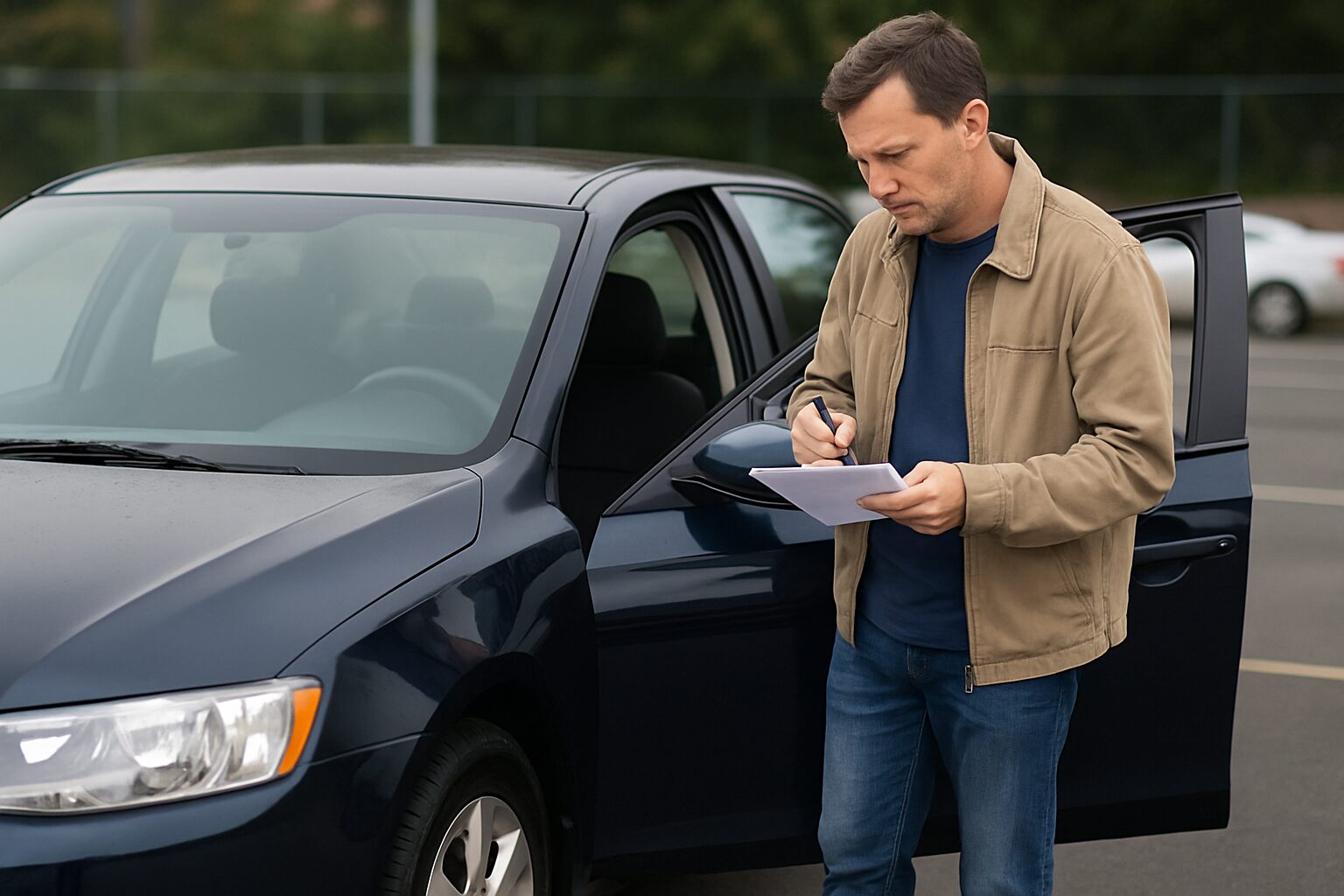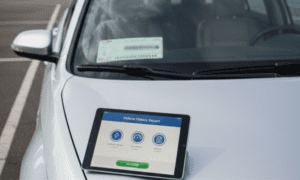Don’t Let a Great Deal Fool You — Some Cars Hide Ugly Secrets
The ad looks perfect. Clean interior. Low mileage. “Runs great,” the seller claims. And the price? Way better than anything a dealership offers. You’re excited. Maybe even ready to bring cash.
But wait. Slow down.
Behind that tempting offer, there might be a salvage title, a flood-damaged engine, or thousands in unpaid loans. That’s the harsh truth about buying a used car from a private seller — it’s risky if you don’t know what to look for.
Before you fall for the paint job, start with something solid: a full vehicle history report. A service like VINinspect.com vin check can reveal accidents, title problems, and odometer rollbacks — things no seller will admit over text. It’s your best defense against making a costly mistake.
And yes, understanding what to check when buying a used car from private seller might just be the most important part of the entire buying process.
Step One: Ask for the Title — and Really Look at It
It all starts with the paperwork. Ask the seller for the vehicle title and check it carefully. If it says “salvage,” “rebuilt,” or “flood,” that’s a major red flag. It means the car was once considered a total loss by insurance. Sure, it might run now — but at what future cost?
Check the seller’s driver’s license too. Their name must match the title. If it doesn’t, ask why. Some sellers claim they’re helping out a “friend” or “family member.” Be cautious — this is where scams begin.
Step Two: Don’t Skip the Service Records — or the Tough Questions
A car without service records is a guessing game. You’ll want to see oil changes, tire rotations, transmission fluid checks, even brake service. It proves the vehicle was cared for — not just cleaned up for the sale.
Ask the seller real questions:
- Why are they selling?
- Do they still owe money on the vehicle?
- Has it ever been in a collision?
- Are there any open recalls?
If they dodge, hesitate, or give vague answers — walk. Private sellers who are honest will be ready with real answers. You’re not just buying a used car. You’re buying their truth.
Step Three: Do Your Own Inspection — Even If You’re Not a Mechanic
You don’t need to be a professional to spot trouble. Bring a flashlight. Look under the car for rust, leaks, or strange stains. Open the hood. Check the oil dipstick. A low level or sludge? Not a good sign. Examine the battery for crusted-over terminals. That tells you a story, too.
Sit behind the wheel. Press the brake pedal — does it feel firm? Try the gas pedal — any weird hesitation? These little moments say more than the seller ever will.
And if something feels off, bring in backup. A mechanic’s inspection might cost a bit, but it’s a small price to avoid a future engine rebuild.
Step Four: Take a Real Test Drive — Not Just Around the Block
This isn’t a joyride. It’s a diagnosis.
Start the car cold. Listen. Any knocking or rattling? Drive through city streets, then hit the highway. Does the steering feel tight? Does the engine respond fast? Watch for dashboard lights. Smell burning oil or strange fumes?
This is your time to evaluate everything — from how the seat fits to how the brakes feel under pressure. You’re not just test-driving a machine. You’re trying on a future.
Step Five: Make Sure the Deal Is Real — and Safe
Some buyers meet strangers in a vacant lot. Don’t. Choose a public space with cameras — some police stations even offer “safe zones” for transactions. Bring a friend. Don’t carry cash without backup.
Double-check the car’s title. Look at the odometer. If the mileage feels too low — trust your gut. Ask for documentation.
Confirm the vehicle has no outstanding debt. If the seller owes money, you could end up paying for a car the bank still owns. Always finish the paperwork after everything checks out — not before.
Conclusion: Protect Yourself Before You Pay
Buying a used car from private sellers isn’t just about finding a good price. It’s about avoiding bad surprises. Be curious. Be cautious. Compare the price to similar models from dealers. And never skip a vehicle history report — it’s your shield.
This isn’t just a purchase. It’s a responsibility. And when you do it right, you drive away with more than a car — you gain control, confidence, and peace of mind.
FAQ: Smart Buyer Questions Before the Sale
1) How do I know if the car has hidden damage?
Check the history report. It reveals past collisions, flood damage, and title issues. Look for paint that doesn’t match, uneven panels, or water marks inside the trunk.
2) Can I buy a car if the seller still owes money?
Only if the lender gets paid first. Never hand over money until the lien is cleared. You can’t legally own a car if the title isn’t free and clear.
3) Do I need car insurance before I drive the car home?
Yes. Even for a test drive, some states require proof of car insurance. Some companies offer instant digital coverage — set it up before you drive away.
4) What if the vehicle was rebuilt after being declared a total loss?
That’s called a salvage title. It lowers resale value and may affect your insurance. Even if it drives fine now, think twice.
5) Can I negotiate the price with a private seller?
Always. Use what you’ve learned — high mileage, missing service history, cosmetic damage — to lower the price. Be respectful, but stand your ground.



































